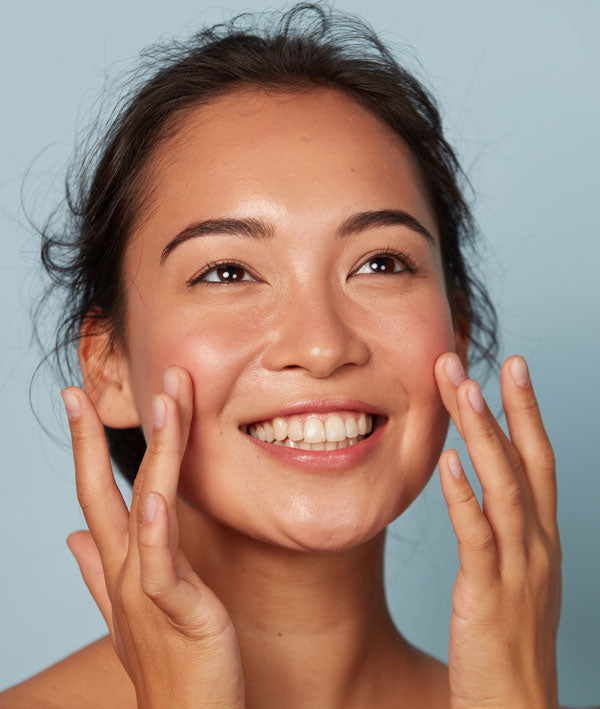Acne is a common skin concern affecting millions of people worldwide. From occasional breakouts to chronic acne, finding an effective solution can be challenging. Among the many skincare ingredients touted for their benefits, vitamin C serum stands out as a powerhouse for skin health. But can vitamin C truly help with acne? In this editorial, we’ll explore how vitamin C impacts acne-prone skin, its benefits, and the best ways to incorporate it into your skincare routine.
Vitamin C Serum Benefits for Skin
Vitamin C, also known as ascorbic acid, is a potent antioxidant that plays a crucial role in skin health. It helps to neutralize free radicals, protect against environmental damage, and support collagen production. These properties make vitamin C an essential ingredient for maintaining youthful, radiant skin.
Beyond its general skincare benefits, vitamin C is particularly effective for improving skin tone, reducing redness, and brightening dark spots. Regular use of vitamin C can lead to a more even complexion, reduced inflammation, and enhanced overall skin texture. But when it comes to acne-prone skin, its benefits extend even further.
Does Vitamin C Help with Acne?
Acne is often caused by excess oil production, clogged pores, bacteria, and inflammation. While vitamin C does not directly treat acne in the way that salicylic acid or benzoyl peroxide might, it does offer several benefits that help manage and reduce breakouts.
-
Anti-Inflammatory Properties: Vitamin C helps to calm inflamed skin, reducing the redness and swelling associated with acne.
-
Antioxidant Protection: It neutralizes free radicals that can contribute to skin irritation and breakouts.
-
Oil Regulation: While vitamin C does not directly control oil production, it helps to balance skin health, reducing excessive oiliness over time.
-
Healing Support: Vitamin C accelerates the skin’s natural healing process, which is beneficial for repairing acne lesions and reducing scarring.
For those with mild to moderate acne, incorporating vitamin C into a skincare routine can improve skin clarity and resilience. However, for severe acne, it should be used in conjunction with other acne-fighting ingredients.
Vitamin C Serum to Prevent Breakouts
Prevention is key when it comes to acne management, and vitamin C plays an important role in keeping breakouts at bay. Here’s how:
-
Strengthens Skin Barrier: A healthy skin barrier prevents bacteria, dirt, and pollutants from clogging pores.
-
Reduces Post-Acne Redness: By soothing irritation, vitamin C minimizes the lingering redness from previous breakouts, creating a clearer complexion.
-
Enhances Skin Cell Turnover: It helps to shed dead skin cells more effectively, preventing clogged pores that lead to acne.
For best results, choose a stable and well-formulated vitamin C serum. L-ascorbic acid is the most potent form of vitamin C, but derivatives like sodium ascorbyl phosphate are gentler and may be better suited for sensitive, acne-prone skin.
Vitamin C for Acne Hyperpigmentation
One of the most frustrating aspects of acne is the hyperpigmentation it can leave behind. Post-inflammatory hyperpigmentation (PIH) appears as dark spots that can take weeks or even months to fade. Vitamin C is one of the best ingredients to speed up this process.
-
Inhibits Melanin Production: Vitamin C helps reduce melanin synthesis, preventing dark spots from becoming more pronounced.
-
Brightens Skin Tone: Regular use of vitamin C fades acne marks, creating a more even complexion.
-
Enhances Sunscreen Protection: Vitamin C works synergistically with SPF to protect skin from UV damage, which can worsen pigmentation.
Using a vitamin C serum consistently can significantly reduce the appearance of acne scars and dark spots, making it a must-have for those dealing with post-acne marks.
How to Incorporate Vitamin C Into Your Skincare Routine
To get the most out of vitamin C for acne-prone skin, it’s important to use it correctly. Here’s how to incorporate it into your daily skincare routine:
-
Cleanse: Start with a gentle, sulfate-free cleanser to remove dirt and oil without stripping the skin.
-
Tone (Optional): If you use a toner, choose one with soothing and hydrating ingredients like niacinamide or green tea extract.
-
Apply Vitamin C Serum: After cleansing (and toning, if applicable), apply a few drops of vitamin C serum to your face and neck. Gently press it into the skin.
-
Moisturize: Use a lightweight, non-comedogenic moisturizer to lock in hydration and protect the skin barrier.
-
Sunscreen (Morning Routine): Vitamin C can make your skin more sensitive to the sun, so always follow up with a broad-spectrum SPF 30 or higher in the morning.
For those new to vitamin C, start with a lower concentration (10-15%) and gradually increase as your skin builds tolerance. If you experience irritation, reduce usage to every other day and opt for a gentler formulation.
Final Thoughts
Vitamin C is a versatile and powerful ingredient that offers multiple benefits for acne-prone skin. While it may not be a direct acne treatment, its anti-inflammatory, antioxidant, and brightening properties make it a valuable addition to any skincare routine. By incorporating a high-quality vitamin C serum, you can reduce breakouts, fade hyperpigmentation, and achieve a healthier, more radiant complexion.
If you’re looking for an effective, science-backed way to improve your skin, vitamin C might just be the missing piece in your acne-fighting arsenal. Try adding it to your regimen and enjoy the transformative effects it can bring to your skin!






